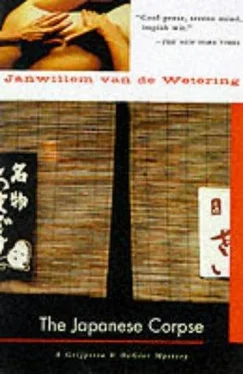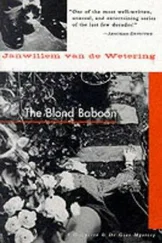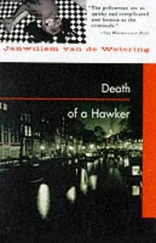Janwillem De Wetering - The Japanese Corpse
Здесь есть возможность читать онлайн «Janwillem De Wetering - The Japanese Corpse» весь текст электронной книги совершенно бесплатно (целиком полную версию без сокращений). В некоторых случаях можно слушать аудио, скачать через торрент в формате fb2 и присутствует краткое содержание. Жанр: Полицейский детектив, на английском языке. Описание произведения, (предисловие) а так же отзывы посетителей доступны на портале библиотеки ЛибКат.
- Название:The Japanese Corpse
- Автор:
- Жанр:
- Год:неизвестен
- ISBN:нет данных
- Рейтинг книги:3 / 5. Голосов: 1
-
Избранное:Добавить в избранное
- Отзывы:
-
Ваша оценка:
- 60
- 1
- 2
- 3
- 4
- 5
The Japanese Corpse: краткое содержание, описание и аннотация
Предлагаем к чтению аннотацию, описание, краткое содержание или предисловие (зависит от того, что написал сам автор книги «The Japanese Corpse»). Если вы не нашли необходимую информацию о книге — напишите в комментариях, мы постараемся отыскать её.
The Japanese Corpse — читать онлайн бесплатно полную книгу (весь текст) целиком
Ниже представлен текст книги, разбитый по страницам. Система сохранения места последней прочитанной страницы, позволяет с удобством читать онлайн бесплатно книгу «The Japanese Corpse», без необходимости каждый раз заново искать на чём Вы остановились. Поставьте закладку, и сможете в любой момент перейти на страницу, на которой закончили чтение.
Интервал:
Закладка:
That was where he had met the young student, a twenty-year-old boy in a black uniform and a cap. Japanese students usually wear that uniform. Dorin had told him about the custom in Tokyo. The style dates back to the First World War and it looks good, though perhaps somewhat boring, for the uniform is everywhere, a black tunic with shining buttons, and fairly tight trousers. The clothes are made of good material and will last for many years, so the students don't have to waste the little money they have. Many students have nothing else to wear anyway.
The boy had spoken to him in halting English. He had understood that the student was interested in improving his command of the language, and he had answered his questions-where he came from, how long he had been in Japan, whether he was having a good time. The commissaris said he was having a good time. The student was walking next to him and said something about an interesting temple just ahead. Maybe they should take a minute and have a look at it. A very old temple, one of the oldest of the city, a beautiful garden, something about the architecture which he hadn't understood. Together they had walked through the large imposing gate, almost a little building in its own right and greeted the monk inside who smiled and bowed at them. The boy said something to the monk and the monk invited them to go into the garden. Apparently the two knew each other. But the garden was a maze and the commissaris had wandered around while the boy pointed at trees, at a stone Buddha sitting in the shadow of a wall, smiling to himself, at a pond where goldfish darted about, at a ferocious statue, a snarling warrior standing on a dead body. "Dead body is self," the student had explained. "Warrior is discipline." He had nodded vaguely, then the boy had disappeared. One second he was there, the next he wasn't. The commissaris was alone with the statue.
There had been something very strange about the statue. He had studied it again and had taken off his glasses and polished them. He had bent down to look at the corpse under the large feet of the warrior. The corpse had a face and the face was his own. He had bent down, unwilling to believe what he saw. But there was no doubt about. The face of the corpse was his own face, complete with the neatly parted hair, the round metal-framed glasses, the small sharp nose, the thin lips. Even the ears were perfect, standing slightly out from the head. And a thin trickle of blood came from the corner of the mouth. He had sat down on his haunches to look at the blood. Tomato ketchup, and the face was a mask, a wooden mask. He had touched it and it was loose. He had taken it in his hand; it came off quite easily. Under the mask was another face, a stone face with slanting eyes, a different face altogether. He had dropped the wooden mask and run. He had run in a circle, and had come to the statue again. The wooden mask was no longer there. As he had taken it off, some of the tmato ketchup, or whatever the red fluid on the mask was, had caused a stain or the gravel. The stain was still there, but the mask was gone. He had rushed off again and found the gate. The monk was no longer there.
But it's all perfectly obvious, he said to himself. They are trying to frighten you. Somebody took a good look at you and made the mask, a rough mask cut quickly out ol soft wood. The mask was placed on the statue and the student and the monk were told to get hold of you and lead you to the statue. And it all happened the way they planned it.
He was still clutching the tabletop. He noticed his white hands and lifted them. They didn't tremble anymore. The girl was looking at him from behind the counter. He remembered the word for "please." "Kudasai." He made himself say the words, "Ko-hi kudasai." She smiled and understood and brought him the coffee. Everything was as it should be.
But what if he hadn't gone with the student? He could have excused himself, couldn't he? Would they have thought of something else? He shuddered in spite of all his efforts. Now look here, he said, you have seen a mask, a well-made mask. You've seen your own portrait. And that's all.
The sergeant had seen a play. When the commissaris reached their room and took off his jacket and washed his face with cold water, de Gier was standing on the balcony. He was practicing with his pistol, pretending just to be standing, then something happened-his hand shot up, whisked the small pistol from the shoulder holster, his other hand shot up as well and grabbed the breach, the breach snapped back, de Gier swiveled around and took aim. Then he replaced the pistol and started all over again. The movements were so quick that they blurred.
"Very good," the commissaris said.
"No. I am quicker with a service pistol. This gun is slightly different. I still haven't got the right grip, but it will come. The whole thing shouldn't take more than two seconds, but I think I need three."
"I saw a mask," the commissaris said, and told his story. De Gier had sat down and was listening carefully.
"Cleverly staged," the commissaris said, when he had come to the end of his report, "don't you think?"
"Yes. I saw something too, I was killed in a play."
De Gier hadn't taken the streetcar when he left the department store. He had studied his maps well and knew the way back to the inn. He had walked, but he had met a young student on his way, and the student had started a conversation.
"What did he look like?" the commissaris asked.
"Small and roundish-tubby is the word, I think- nervous little fellow, waved his hands about and talked like a flowing drain. His English was excellent. He told me that he had spent a year in Australia, on some exchange program."
"Different fellow," the commissaris said, "but it had to be, of course. They met us about the same time, but go on, I am sorry I interrupted you."
The student had invited the sergeant into a small bar. De Gier hadn't wanted a drink, so they had coffee instead.
"We Japanese used to drink only tea," the student had told him. "To drink tea became an art. We know at least five hundred different types of tea, all different tastes and qualities. A very elaborate art with many details. The cups or bowls come in different styles, they are held in a certain way, the choice of the teapot matters; we are taught how to sit while we drink; even the conversation has certain rules." The sergeant had said that he had heard about this. The Tea Ceremony, an important event.
The student had smiled and bowed. Yes, yes. But then coffee came on the scene and they quickly acquired the taste. But now coffee had to have its rites too. He had pointed at the array of jars on the shelf behind the bar counter. Some twenty different jars. Different qualities. Brazil, Colombia, Java. "We even have monkey coffee," the student had said. "Do you know what that is?"
De Gier didn't know. The student was glad he could explain. In Burma certain experiments had been made with coffee plantations. It was thought that the plantations should be high in the mountains, but for some reason the crops had been disappointing and attempts to plant there had been stopped. But the coffee plants still grew, and the berries were eaten by monkeys. The pips, being inedible, passed through the monkeys' intestines and were deposited all over the place. And the mountain tribes would gather the pips, clean them and sell them. At a high price, of course, for it was hard work to gather the pips. Monkey coffee sells at about ten times the price of the ordinary qualities.
De Gier was impressed and the student was happy. They left the bar and walked about and the student chattered on. De Gier was getting tired of the high-pitched voice, but the student had a sense of humor and the sergeant went on listening. They came to a small brick building, at the end of an alley, a theater serving the people of the poor quarter with live plays, song and dance, music, bits of clowning. The student said that the city had many little theaters like that. People liked to go in and stay an hour or so. Would he like to go in for a bit? He wouldn't be able to understand the dialogue, of course, but maybe it would be amusing to watch the actors. They had gone in.
Читать дальшеИнтервал:
Закладка:
Похожие книги на «The Japanese Corpse»
Представляем Вашему вниманию похожие книги на «The Japanese Corpse» списком для выбора. Мы отобрали схожую по названию и смыслу литературу в надежде предоставить читателям больше вариантов отыскать новые, интересные, ещё непрочитанные произведения.
Обсуждение, отзывы о книге «The Japanese Corpse» и просто собственные мнения читателей. Оставьте ваши комментарии, напишите, что Вы думаете о произведении, его смысле или главных героях. Укажите что конкретно понравилось, а что нет, и почему Вы так считаете.












